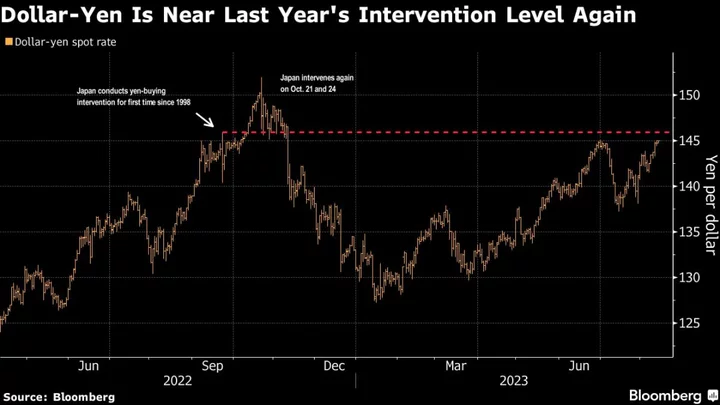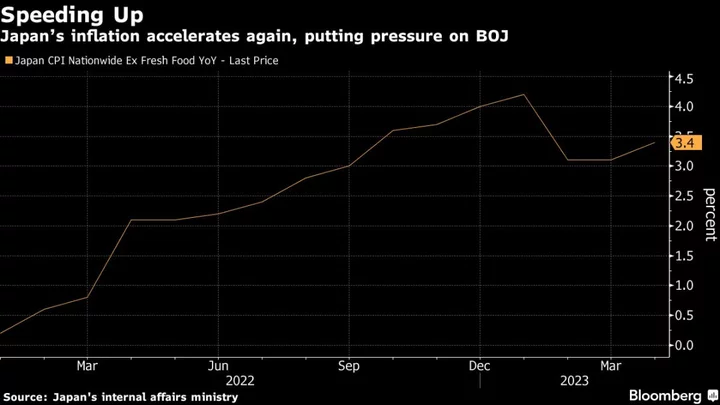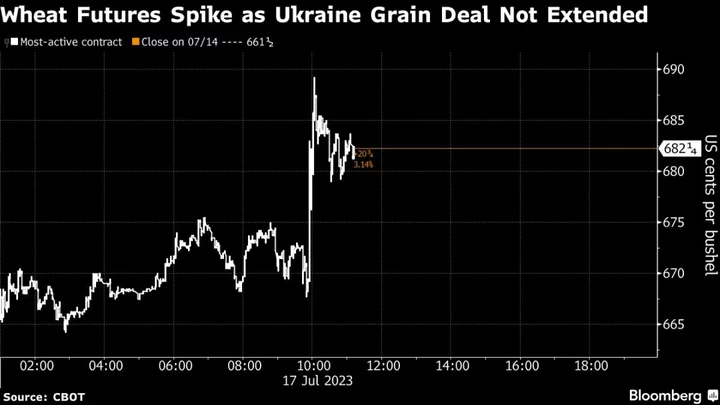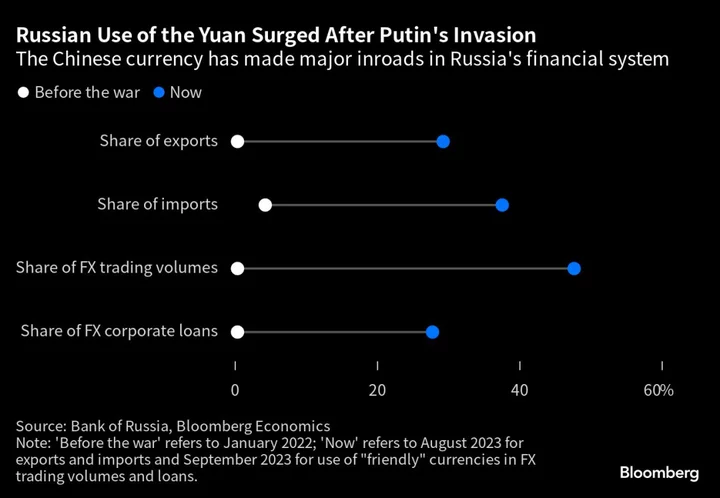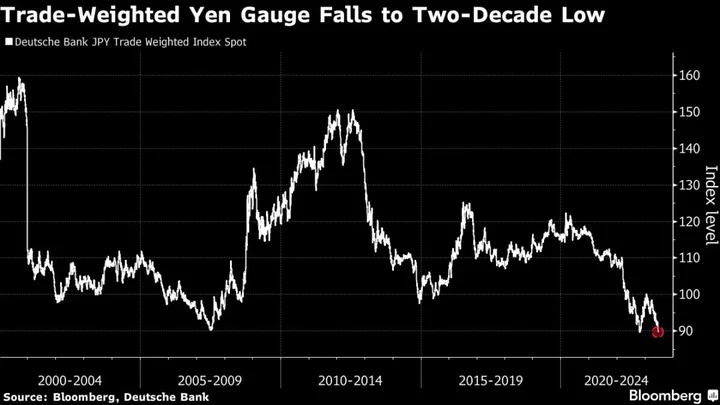The yen hovered around the psychological 145 level versus the dollar and within reach of its weakest level this year as a persistently wide interest-rate gap with the US weighs on the Japanese currency.
Investors are on guard for any sharp moves as traders return in Tokyo following a holiday in Japan on Friday. Any depreciation past 145.07 would take it to a zone seen in late 2022, when Japanese authorities intervened in the market. It was steady at 144.98 at 6:47 a.m. Tokyo time on Monday.
The yen was under pressure last week, as a slide in Treasuries pushed up US yields. Benchmark 10-year Japanese government bond yields sit below 0.6%, versus more than 4% for similar maturity Treasuries.
While the BOJ adjusted its yield-curve control program on July 28 to make it more flexible — allowing 10-year rates room to move up toward 1% — this has failed to stem weakness in the currency. That’s partly because the central bank has also indicated it won’t tolerate a rapid move in yields, and bought JGBs to stem the climb.
The central bank has repeatedly said that its adjustments to YCC are not steps toward an exit from ultra-easy monetary policy. Japan is the only nation that maintains a negative interest rate, which continues to weigh on the yen.
“Weak expectations for Bank of Japan policy tightening, following the recent soft wage and PPI data, are supporting dollar-yen,” Carol Kong, a strategist at Commonwealth Bank of Australia, wrote in a note. “Also underpinning dollar-yen has been the spike in energy prices amid heightened concerns over gas supply.”
The bout of pronounced weakness in the currency late last year drew Japanese authorities into the market on three occasions, in what were their first such interventions to support the yen since 1998. The first of the forays came as it tumbled toward 146.
The yen has slumped about 9.5% against the dollar this year, making it the worst performer among key developed-market currencies.

